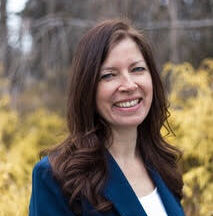Today is tax day. This isn’t the typical time to file taxes. We are much more accustomed to submitting tax returns in the Spring. But then, not much is typical right now.

Covid-19 has upended our lives in a multitude of ways, leading to a lot of provisional and temporary adjustments to make life work. We grocery shop with masks, worship online, work remotely, graduate in drive-by ceremonies, and generally try to limit our contact with others. This is certainly not the 2020 we were hoping for and I suspect, after four long months of this, many of us are weary, longing for a return to “normal.”
Going back to the way things were . . . that would be the easiest. But I find myself wondering if that is what we should even be hoping for. After all, the way things were before Covid wasn’t necessarily great. At least not for everyone. We live in a country with significant disparities that run across racial and ethnic lines, disparities that our Covid-19 world has accentuated and exacerbated.
Take, for example, the decision in March by schools around the country to educate our children remotely. Recent studies have shown that students from low-income families, a disproportionate number of whom are students of color, faced significant roadblocks to learning because they didn’t have the required access to good internet, a personal computer, and often, someone in the home to help them work through the material.

In some cases, the tech industry stepped up to alleviate this disparity by supplying internet access or computers. However, these were merely temporary and patchwork solutions to a disparity in educational resources and opportunities that has long plagued American schools. To go back to “normal” is to go back to ignoring the way our educational system is failing low-income populations.
Covid-19 has highlighted similar disparities in our healthcare system. According to the CDC, people of color are 20-25 percent more likely to contract Covid-19. The reasons for this are many and varied, but three are worth mentioning here: 1. People of color tend to work in essential industries, resulting in greater exposure to the virus; 2. lack of health insurance has made health care inaccessible to too many people of color, meaning they are more likely to have underlying conditions that have gone inadequately treated. This, in turn, has made them more susceptible to the virus; and 3. racism and systemic inequities undermine prevention and care efforts among people of color. To return to normal is to continue to disregard disparities in health care and the general well-being of people of color that Covid is making visible.
With the gratuitous death of George Floyd at the hands of police in May of this year, America as a nation has been forced to reckon with racial injustice and inequity. You might say we have been awakened to the systemic racism in our nation’s structures and institutions. In response, hundreds of thousands of people in cities around the world have gathered together to protest racism and police brutality against people of color. Institutions have put out statements, taking a stand against racist attitudes and behaviors.

White folks in Christian circles have gotten together to read James Cone and Ta-Nehisi Coates. Phrases like white privilege, critical race theory, and structural racism have started coming up in casual conversation. There is an energy and earnestness to these actions that is deeply encouraging. But even as I write this, I’m conscious that change won’t come quickly or easily. The attraction and pull of returning to “normal” is strong. And in America, racism is part of that “normal.”
Perhaps this is where we can take a lesson from Rizpah. Rizpah is a little known character in the Old Testament, the secondary wife of Saul (thanks to Sarah Schreiber for directing my attention to her). We meet up with Rizpah in 2 Samuel 21 after Saul has been killed and David has become king of Israel. As retribution for Saul’s attack on them, David hands over seven of Saul’s surviving sons to the Gibeonites to be lynched. Innocent blood for innocent blood. Two of these victims are Rizpah’s sons.

Rizpah is powerless to prevent their death. What she can do, however, is make visible the invisible, calling attention to the injustice of the violent and gruesome deaths of innocent lives. For six long months, through the heat and the rain, she sits among the dead bodies, dignifying them with her mourning, and protecting the corpses from preying birds and wild animals. For six long months, she sits with her sackcloth, inviting the nation to repentance and social change. For six long months, Rizpah suffers until finally David notices her and makes reparations of sorts, gathering the bones of Saul and Jonathan and Saul’s seven sons and burying them with dignity.
For many of us, the events of this year have opened our eyes to the realities of racism in our country. My prayer in all of this (and perhaps yours as well) is that this new awareness and energy will bring about real social change. That like Rizpah, we will be persistent, courageous, and sacrificial in advocating for the dignity of our black and brown siblings. That like Rizpah, we will resolve to continue to point to injustices until justice is won. And that, in all of this, we will resist returning to “normal.”

